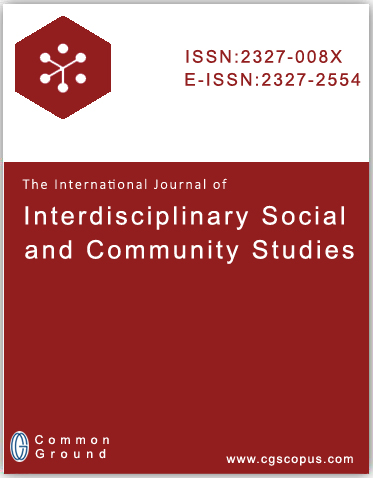Salvaging Humanity: Environmental Collapse, Social Inequality, and Labour Exploitation in Paolo Bacigalupi’s Ship Breaker
DOI:
https://doi.org/10.18848/9wg6n822Keywords:
Dystopia, post-apocalyptic fiction, climate change, environmental degradation, social inequality, labour exploitationAbstract
This paper delves into the complex interplay of climate change, social inequality, and labour exploitation in Paolo Bacigalupi’s Ship Breaker. Set in a near-future world devastated by environmental catastrophe, the novel depicts a stark divide between the wealthy elite and the impoverished labourers, exacerbated by corporate greed and ecological collapse. Bacigalupi uses the brutal shipbreaking industry as both a literal and metaphorical representation of human and environmental exploitation. This paper explores how the protagonist Nailer’s journey illuminates the systemic injustices perpetuated by capitalist structures, which commodify human life and labour while eroding ethical boundaries. Bacigalupi’s narrative thus becomes a scathing critique of class oppression and the unchecked environmental degradation driven by profit. Ship Breaker echoes contemporary anxieties about climate change and social disparity, situating itself within the tradition of dystopian and critical climate fiction (cli-fi). By presenting a world where survival hinges on exploiting both people and the environment, Bacigalupi forces readers to confront the moral and social consequences of our current trajectory. Ultimately, this analysis demonstrates how Ship Breaker mirrors real-world fears and challenges, using its post-apocalyptic setting to reveal the deep interconnections between ecological neglect and economic inequity.










